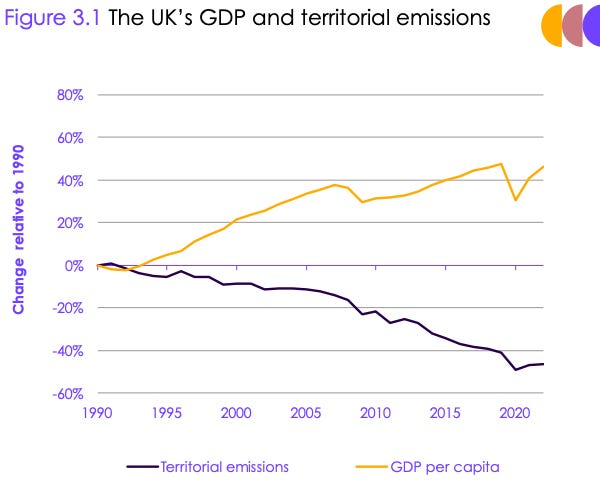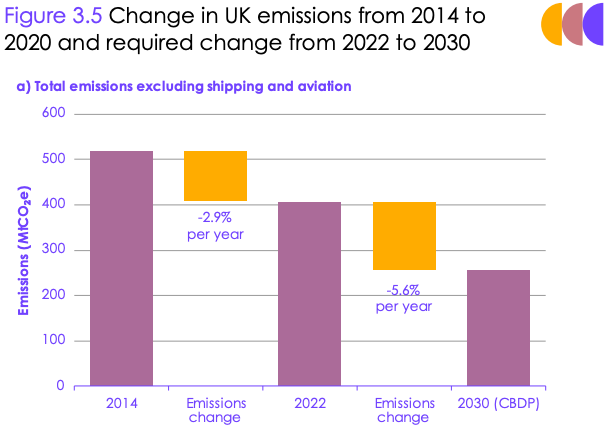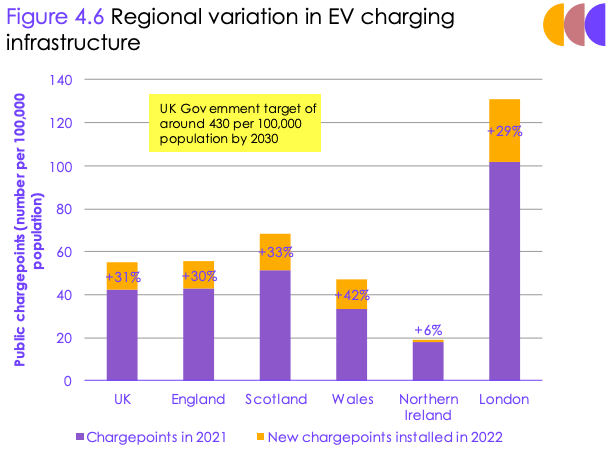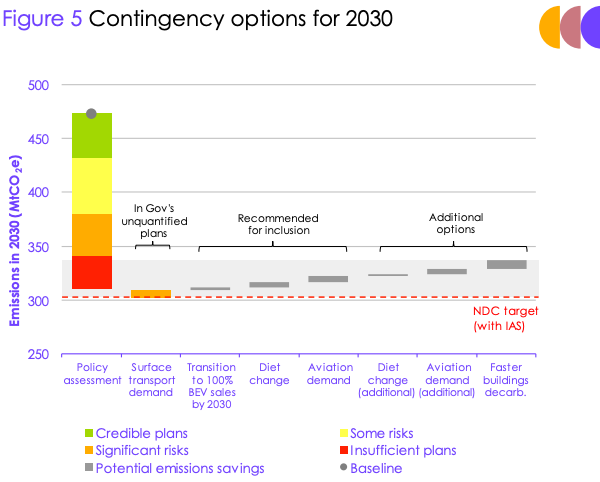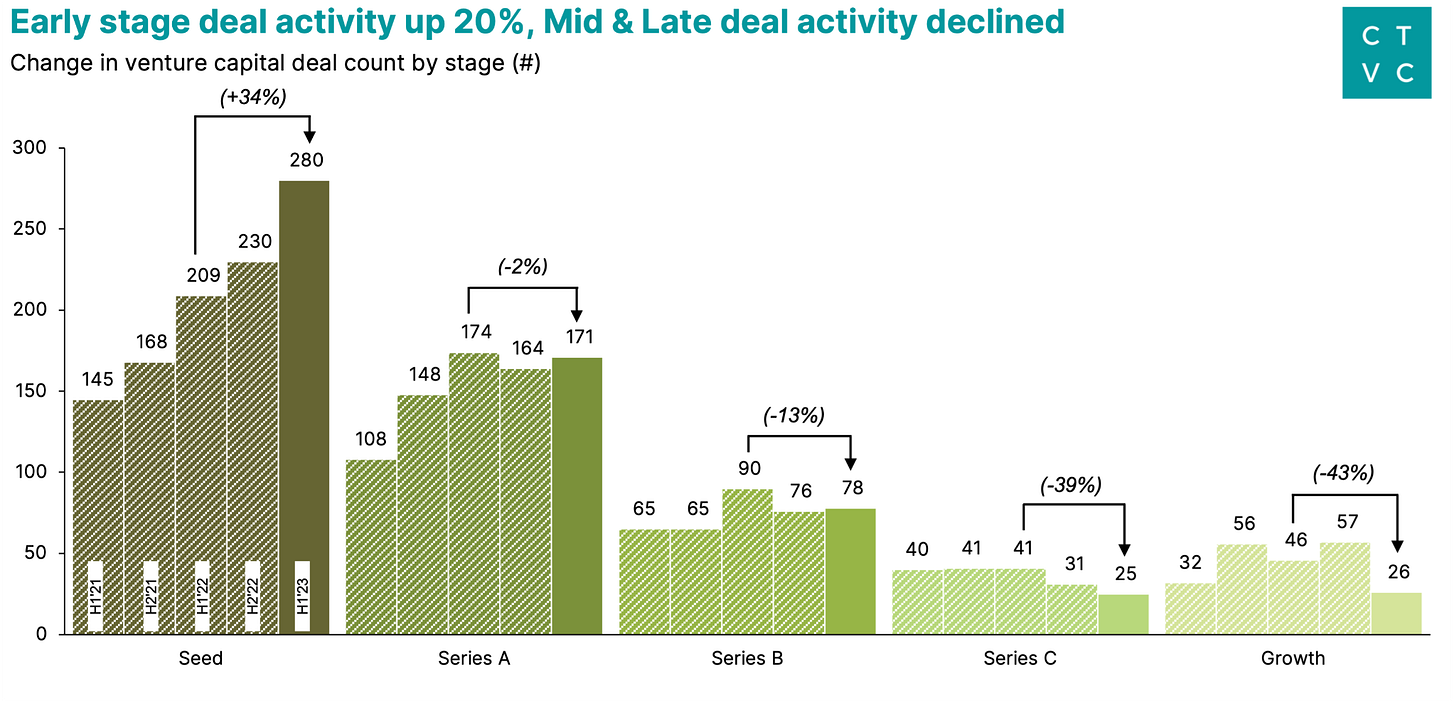The government published a report with highlighting the UK Government’s progress to date in reducing emissions. At a headline, progress in policy development remains slow, and the evaluation of the Carbon Budget Delivery Plan (CBDP) has been mediocre. Despite the Government's provision of more specific details, the report notes that the UK's ability to achieve its intermediate goals has diminished over the past year. By contrast, China is on track to hit its solar and wind target five years ahead of time.
Scorecard for the UK’s progress to date 🗞️
Here is a summary of the main points:
Lack of urgency: The policy framework for addressing climate change is not developing at the required pace. There needs to be a greater sense of urgency in delivering the Net Zero target and taking high-intensity action.
Stay firm on commitments: Existing commitments, such as the phase-out of fossil fuel vehicles, decarbonization of electricity, heat pump installations, and support for new industries like hydrogen, should be reaffirmed and swiftly moved towards implementation.
International leadership: The UK should regain its international climate leadership by reducing emissions according to its ambitious targets, aligning decisions on fossil fuel production and infrastructure with Net Zero, and prioritizing climate in diplomatic efforts.
Immediate priority actions: Urgent action is needed in various sectors, including industry (e.g., steel decarbonization), tree planting, peatland restoration, electric heating deployment, and low-regret energy infrastructure decisions. Rebalancing electricity and gas prices is also welcomed.
Balanced approach: The current strategy relies heavily on specific technological solutions, posing risks to meeting emissions targets. Policies should empower individuals to make low-carbon choices, including home energy use, diet changes, and reduced travel. More policy strengthening may be necessary in these areas.
Public engagement: A coherent public engagement strategy on climate action is overdue. Empowering and informing households and communities about their role in achieving Net Zero, along with implementing supportive policies, is essential.
Planning reform: Restrictive planning rules may hinder the rapid deployment of infrastructure for Net Zero. Planning decisions should prioritize the imperative of achieving Net Zero.
Fossil fuel production: The expansion of fossil fuel production contradicts Net Zero goals. While some oil and gas may be needed during the transition, new development of North Sea fields should not be justified.
Airport capacity management: No net airport expansion should occur until a UK-wide capacity management framework is established to assess and control sector CO2 emissions and non-CO2 effects on an annual basis.
These points emphasize the need for urgent action, reaffirmation of commitments, international leadership, balanced policies, public engagement, planning reform, fossil fuel transition, and responsible management of airport capacity to achieve Net Zero targets and combat climate change effectively.
Week in Impact Articles ✍🏽
Monday: Babylon Updates
Tuesday: China Environment Targets
Wednesday: NHS Checks to Launch in Spring
Thursday: SVB’s Take on ClimateTech
Friday: Vox on Deforestaation
3 Key Charts 📊
1. ClimateTech funding in H1 2023
2. Early stage venture activity is still up year over year
3. Solar investment is seeing the spotlight
Deal Capture 💰
Deals in the impact space across the UK and Europe
Algorithmiq
Drug discovery player Algorithmiq raises €14 million.
Depoly
Waste converter Depoly raises €14 million.
Greenlyte
Carbon tech platform Greenlyte raises €4.5 million.
Olivia
Mental health and wellbeing platform raises €5 million.
Steady Energy
Nuclear reactor company Steady Energy raises €2 million.
Getting in Touch 👋.
If you’re looking for funding, you can get in touch here.
Don’t be shy, get in touch on LinkedIn or on our Website 🎉.
We are open to feedback: let us know what more you’d like to hear about 💪.




